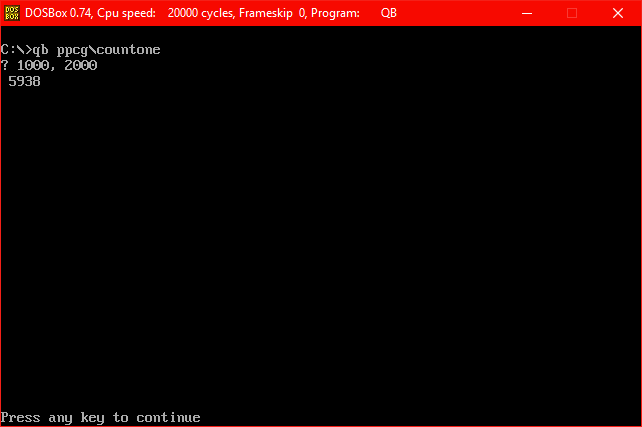Challenge :
Count the number of ones 1 in the binary representation of all number between a range.
Input :
Two non-decimal positive integers
Output :
The sum of all the 1s in the range between the two numbers.
Example :
4 , 7 ---> 8
4 = 100 (adds one) = 1
5 = 101 (adds two) = 3
6 = 110 (adds two) = 5
7 = 111 (adds three) = 8
10 , 20 ---> 27
100 , 200 ---> 419
1 , 3 ---> 4
1 , 2 ---> 2
1000, 2000 ---> 5938
I have only explained the first example otherwise it would have taken up a huge amount of space if I tried to explain for all of them.
Note :
- Numbers can be apart by over a 1000
- All input will be valid.
- The minimum output will be one.
- You can accept number as an array of two elements.
- You can choose how the numbers are ordered.
Winning criteria :
This is code-golf so shortest code in bytes for each language wins.


IntRangein Kotlin,Rangein Ruby)? \$\endgroup\$1000 - 2000yields 5938, but lower the case by 1000, the result also drops by 1000:0-1000 = 4938. Proof \$\endgroup\$